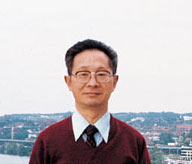Op-Ed Contributors
The new era of the Sino-US relationship
Updated: 2011-05-18 15:34
By Zhou Yihuang (chinadaily.com.cn)
|
 Zhou Yihuang, a former diplomat at the Chinese embassy in the US. |
The US is now undoubtedly the world’s most powerful country in terms of economy, technology and military. But China is catching up after 30 years of reform. With an annual GDP growth of 9 percent, China has the second-largest economy, is one of the biggest exporters and has a foreign currency reserve of $3 trillion. It is now a newly developed powerful country recognized by the whole world.
Historically, severe conflicts take place between powerful countries and newly developed countries. In order for the lesser-developed country to gain control, they fight for raw materials and market expansion, seek hegemony and engage in colony expansion. This type of behavior has led to the tragedy of two world wars.
Is it possible China and the US will repeat history? Not likely as this is a new century in an information-based era that is focused on globalization. With products flowing into the world market, the economic connection between countries becomes closer day by day. This phenomenon of countries co-existing is particularly obvious with the China-US relationship. In 2010, the trade volume between China and the US reached $385 billion, which makes China the second-largest trading partner for the US. That is up from $2.5 billion in 1979, when the two countries started trading. In terms of exports, China has contributed to the biggest portion of the US’ economic growth in the US’ export market. And millions of jobs are provided by the Sino-US trade.
The sales volume of US companies in China has surpassed $220 billion, while Chinese investment is rapidly increasing in the US. Chinese goods exported to the US, some of which are daily necessities sold at a low price, has helped the US save $600 billion over 10 years. China has also helped the US recover from the financial crisis by purchasing government debt. China increased its holdings from $519 billion in 2008 to $906 billion in 2010. All of this evidence sufficiently proves the strong bond between the two powerhouses.
Today’s China-US relationship is vastly different than the relationship between the US and the former Soviet Union during the Cold War.
First, the Soviet Union sought hegemony and wanted to fight to become the dominant power, which started a confrontation involving military power. China, on the other hand, never wants to seek hegemony. It seeks to maintain peace in its diplomatic policy and aims to develop a harmonious world, never wanting to challenge the dominant position of the US.
Second, when the US developed a capital economy, the Soviet Union developed a socialized economy. They seldom positively interacted, thus created a threatening relationship. China, on the other hand, has integrated well into the world economy since its reforms, especially after it joined the World Trade Organization. Also, China and the US have developed a complementary economic relationship. To some extent, China’s prosperity is based on the prosperity of the US, and the prosperity of the US is built upon China’s development. Since the two countries rely so heavily on each other in an economic sense, political or military confrontation is not expected.
This was the first year for military representatives from each to attend the China-US Strategic and Economic Dialogue, now in its third year. Their participation will help stimulate communication, avoid misjudgments and misunderstandings. And by introducing China’s national defense policies and showing achievements of modern militarization, it has created a more transparent dialogue and opens the possibility of working together on international security issues.
The two countries also signed an agreement to boost sustainable growth during the two-day talks, a reflection that they would like to develop economic cooperation on a broader scale and for the long term. It will promote prosperity as they are economically bound to build each other up.
Since both China and the US are the most politically and economically influential countries in the world, strengthening their ties is good for them, and good for the whole world.
The author is a former diplomat at the Chinese embassy in the US.
Specials

The song dynasty
There are MORE THAN 300 types of Chinese operas but two POPULAR varieties are major standouts

Sino-US Dialogue
China and the US hold the third round of the Strategic and Economic Dialogue from May 9-10 in Washington.

Building communities
American architect John Portman and his company have developed more than 30 projects across China.